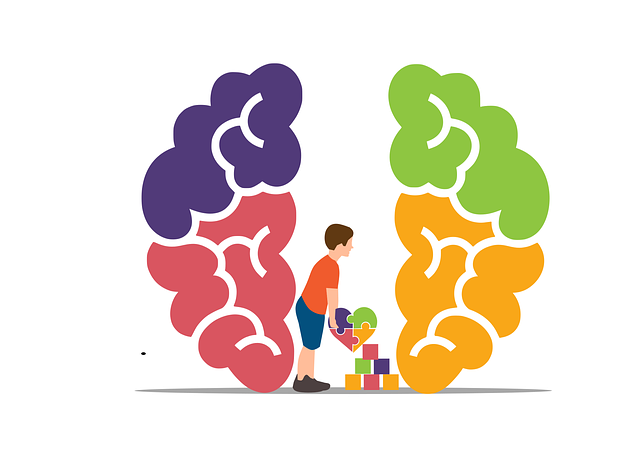Public awareness campaigns led by organizations like Englewood Alcohol Abuse Therapy are vital for educating communities about alcohol abuse, promoting emotional well-being, and preventing burnout. These campaigns, successful due to a blend of behavioral understanding and cultural sensitivity, use evidence-based methods and tailored messages to reach diverse audiences. By integrating stress management workshops and showcasing recovery stories, they empower individuals to adopt healthier lifestyles. Measuring success involves tracking KPIs like campaign reach and behavioral shifts, while cultural sensitivity ensures genuine community engagement and fosters sustainable changes.
Public awareness campaigns play a pivotal role in shaping societal attitudes and behaviors, especially regarding critical issues like alcohol abuse. This article delves into the multifaceted development of such campaigns, focusing on education as a cornerstone in society. We explore effective strategies for behavioral change, emphasizing tailored messaging to engage target audiences.
Through case studies, we’ll demonstrate how measuring success and long-term effects can drive impactful initiatives, even highlighting the role of Englewood Alcohol Abuse Therapy in community transformation.
- Understanding Public Awareness: The Role of Education in Society
- Designing Effective Campaigns: Strategies for Behavioral Change
- Engaging Target Audiences: Tailoring Messages for Impact
- Measuring Success and Long-term Effects: Evaluating Campaign Outcomes
Understanding Public Awareness: The Role of Education in Society

Public awareness campaigns play a pivotal role in shaping societal understanding and behaviour, especially regarding issues like alcohol abuse. At the heart of this process lies education, which empowers individuals to make informed decisions. In the context of Englewood Alcohol Abuse Therapy, raising public awareness means equipping people with knowledge about the dangers of excessive alcohol consumption and its impact on both the individual and community.
Self-awareness exercises can be a powerful tool in this campaign, encouraging folks to reflect on their relationship with alcohol and fostering emotional well-being promotion techniques. By understanding personal triggers and vulnerabilities, individuals are better equipped to resist harmful habits and seek support when needed. This proactive approach not only benefits the person but also contributes to burnout prevention, as it addresses issues at their root, leading to long-term positive behaviour changes.
Designing Effective Campaigns: Strategies for Behavioral Change

Designing effective public awareness campaigns requires a deep understanding of human behavior and societal dynamics. At organizations like Englewood Alcohol Abuse Therapy, we’ve found success by employing evidence-based strategies that focus on both individual and community levels. This includes leveraging compelling storytelling to create emotional connections and encourage empathy, as well as utilizing data-driven insights to identify specific at-risk populations and tailor messaging accordingly.
Cultural sensitivity in mental healthcare practice plays a crucial role in campaign effectiveness. Recognizing and addressing diverse cultural beliefs and practices ensures that the information presented is relevant, accessible, and respectful. Additionally, incorporating strategies for burnout prevention and stress management workshops within campaigns can empower individuals to take proactive steps towards healthier lifestyles.
Engaging Target Audiences: Tailoring Messages for Impact

In crafting public awareness campaigns about sensitive issues such as alcohol abuse, it’s paramount to consider Englewood Alcohol Abuse Therapy as a guiding principle. Effective communication requires understanding and engaging specific target audiences with tailored messages. Recognizing diverse communities and their unique cultural nuances, like Cultural Sensitivity in Mental Healthcare Practice, is essential for creating impactful campaigns. By addressing issues from various perspectives, these initiatives can resonate more deeply, fostering genuine connections and encouraging help-seeking behaviors.
For instance, when targeting younger demographics, leveraging relatable narratives and peer support through Trauma Support Services can be highly effective. Conversely, reaching older adults might require focusing on successful recovery stories that highlight the potential for Inner Strength Development. This strategic tailoring ensures messages are not only heard but also understood and heeded by diverse audiences, ultimately amplifying the campaign’s impact and contributing to positive behavioral changes in communities.
Measuring Success and Long-term Effects: Evaluating Campaign Outcomes

Measuring the success and long-term effects of public awareness campaigns is crucial for evaluating their impact on communities. This involves tracking key performance indicators (KPIs) such as campaign reach, engagement levels, and changes in behavioral intent or actual behavior. For instance, an Englewood Alcohol Abuse Therapy initiative could measure the success of its campaign by monitoring the number of individuals seeking help at local clinics or through online resources after the awareness drive.
Additionally, assessing long-term effects requires looking beyond immediate responses. This includes examining whether the campaign has contributed to sustainable changes in attitudes and behaviors related to the targeted issue. For example, a Risk Assessment for Mental Health Professionals might show an increase in community members’ willingness to discuss mental health issues openly, indicating heightened cultural sensitivity, as well as improved access to services, reflecting successful Risk Management Planning for Mental Health Professionals. Cultural Sensitivity in Mental Healthcare Practice can play a significant role in campaign effectiveness, ensuring that messages are tailored to resonate with diverse communities and promote genuine engagement.
Public awareness campaigns play a pivotal role in educating communities, driving behavioral change, and fostering positive outcomes. By combining effective strategies from education and marketing, we can create impactful initiatives that resonate with diverse audiences. As seen with successful programs like Englewood Alcohol Abuse Therapy, tailored messages that address specific needs can lead to lasting changes. Through careful design, engaging content, and robust evaluation, these campaigns not only inform but also inspire individuals to make healthier choices.














